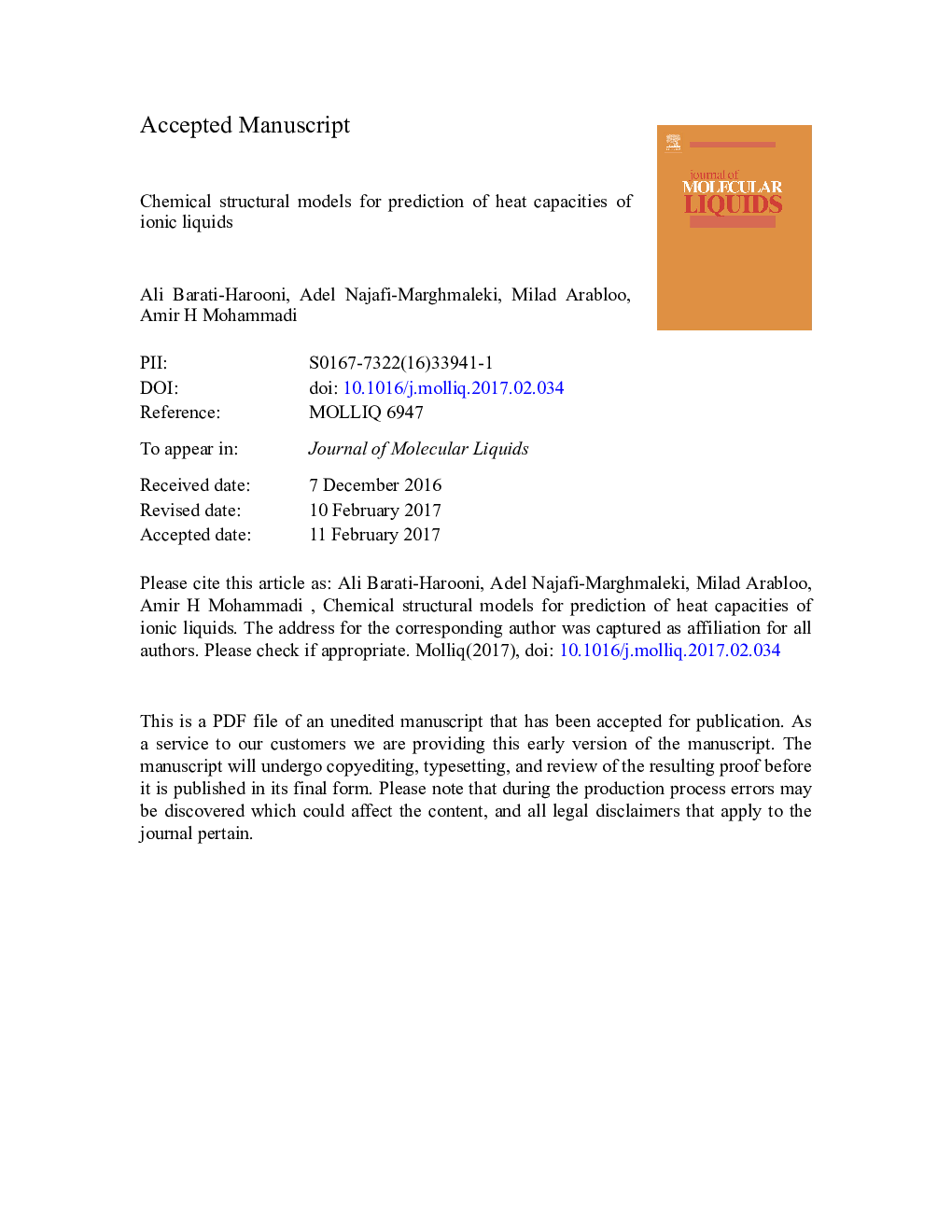| Article ID | Journal | Published Year | Pages | File Type |
|---|---|---|---|---|
| 5408778 | Journal of Molecular Liquids | 2017 | 42 Pages |
Abstract
Heat capacity of ionic liquid (IL) is an important property which is needed in various scientific and engineering problems. Hence, it is required to develop accurate and general models for prediction of this property at various conditions from both academic and industrial perspectives. This work highlights the application of three models namely least square support vector machine optimized by coupled simulated annealing optimization algorithm (CSA-LSSVM), gene expression programming (GEP) and adaptive-neuro fuzzy inference system optimized by hybrid method (Hybrid-ANFIS) for prediction of heat capacity of ILs. An extensive data set including 2940 data points for 56 ILs was used to develop the models. Predictions of the developed models were evaluated by statistical and graphical validation approaches. Moreover, comparison was also made between outcomes of the developed models and predictions of recently developed literature correlations. Results show that the models are accurate and reliable. However, the predictions of CSA-LSSVM model are better than GEP and Hybrid-ANFIS models. In addition, the developed models outperform the literature correlations for prediction of heat capacities of ILs.
Related Topics
Physical Sciences and Engineering
Chemistry
Physical and Theoretical Chemistry
Authors
Ali Barati-Harooni, Adel Najafi-Marghmaleki, Milad Arabloo, Amir H Mohammadi,
